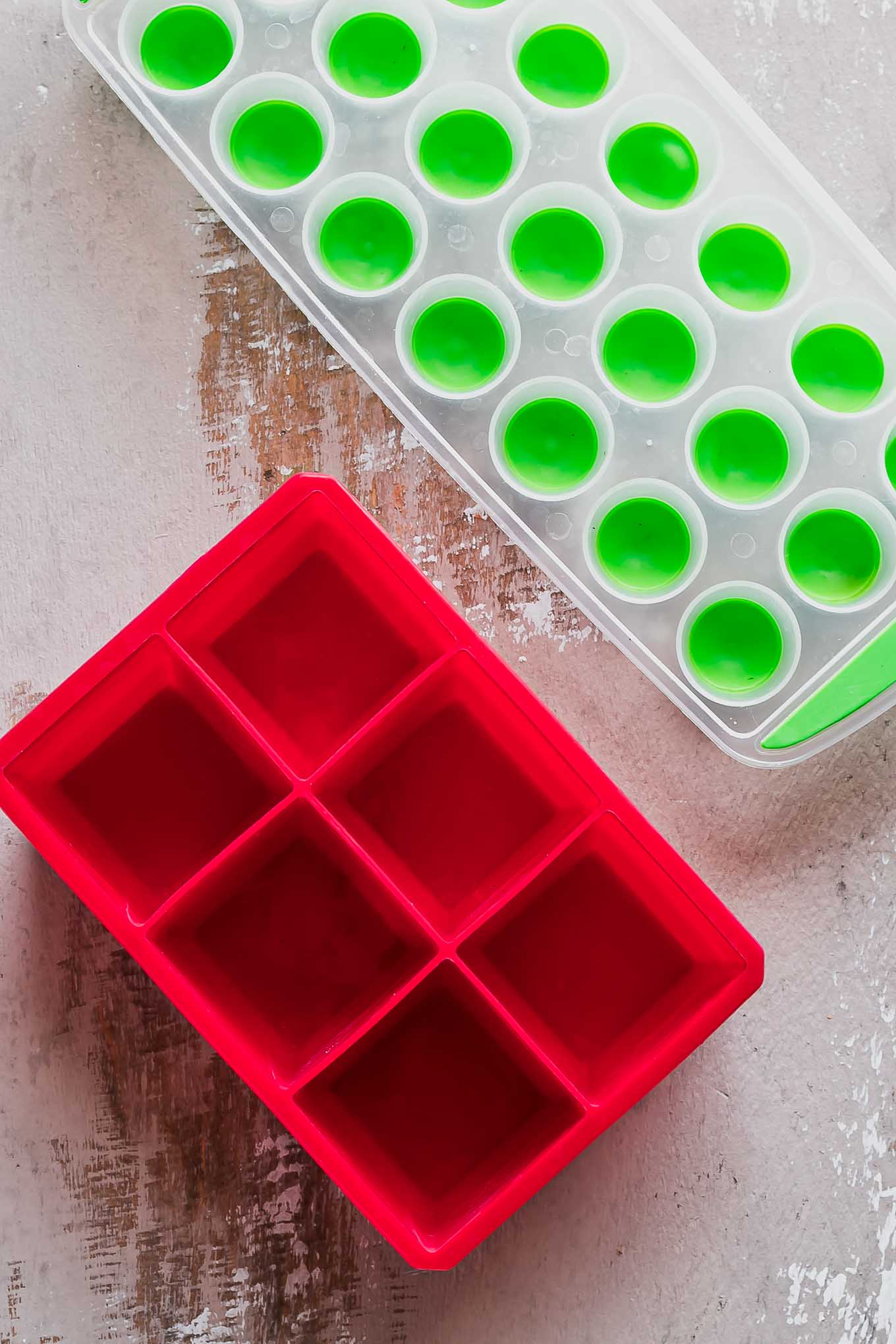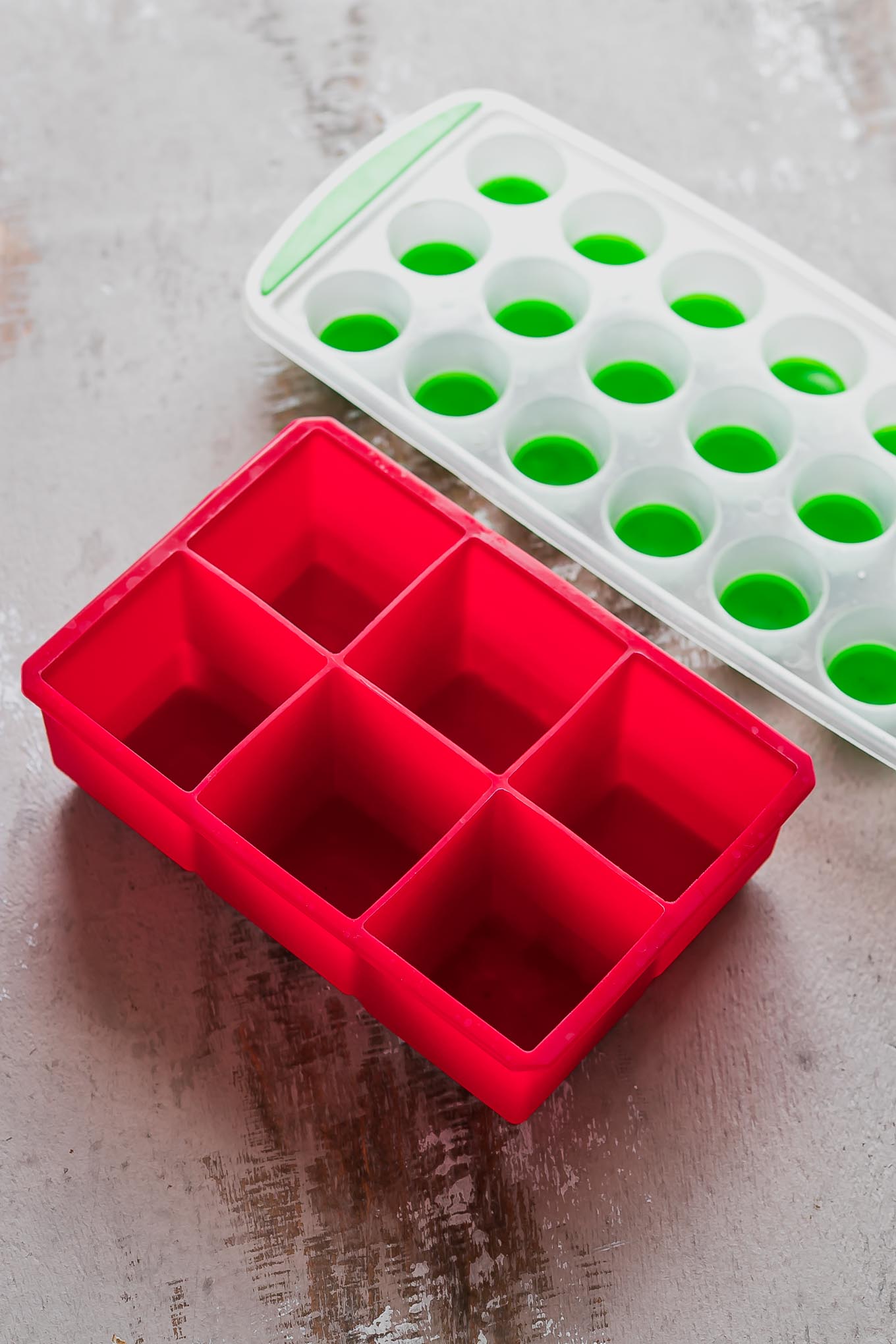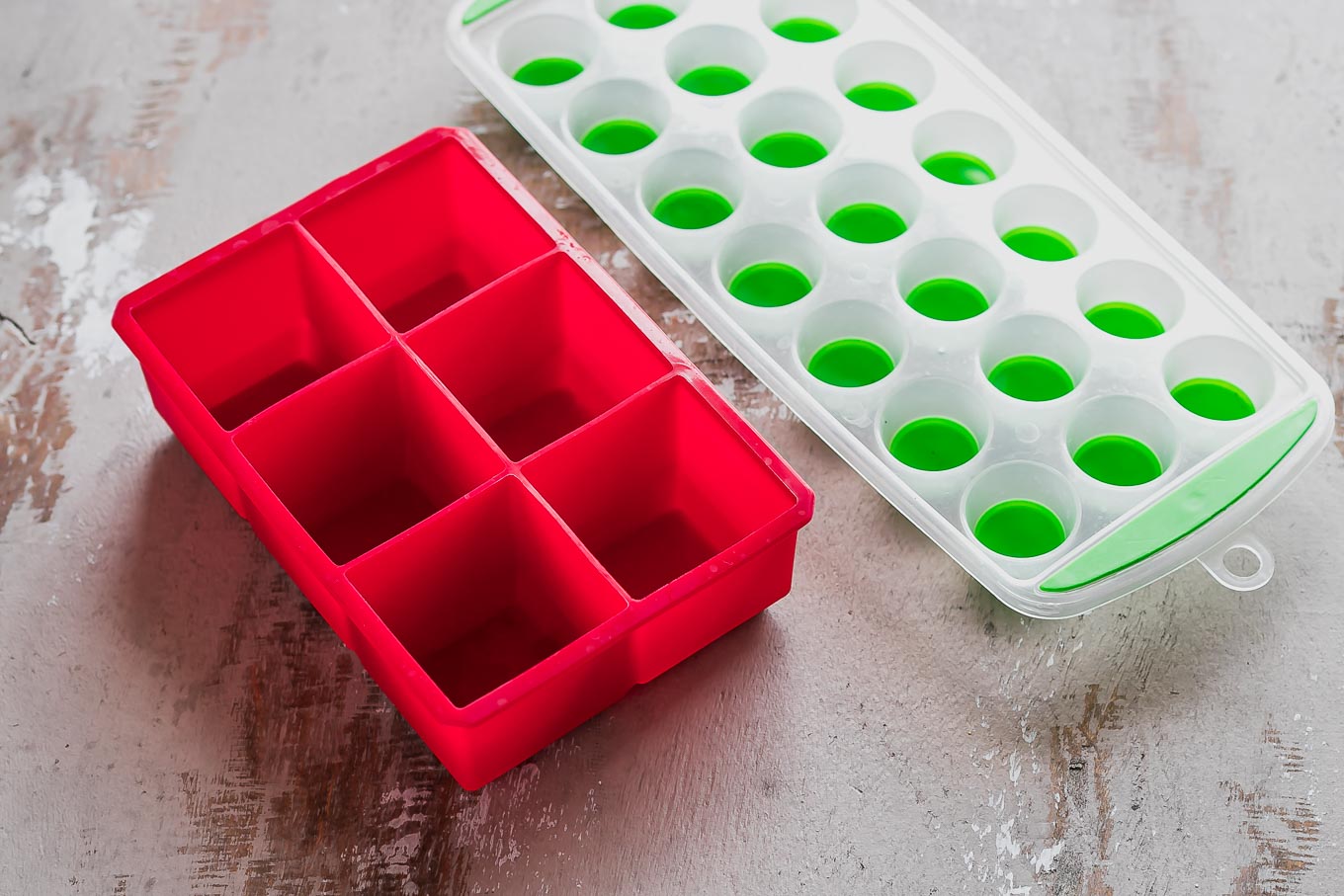Are Silicone Ice Trays Eco-Friendly?
Wondering whether silicone ice trays are eco-friendly alternatives to plastic? In this guide, we’re breaking down what silicone is, how it decomposes, and whether you should buy silicone ice trays in place of plastic, or even use your refrigerator’s ice machine.

Want to Save This Recipe?
Enter your email & I’ll send it to your inbox. Plus, get new plant-based recipes in your inbox!
By submitting this form, you consent to receive emails from Fork in the Road.
Have you ever wondered whether ice cube trays made from silicone are actually a more sustainable choice than those made from plastic? And is using a silicone tray more energy-efficient than using your refrigerator’s built-in ice maker?
Ice trays made from silicone are a more sustainable choice than trays made from plastic, as silicone is a more durable material that will last longer than plastic, and the process of making silicone is less environmentally taxing than plastic production. Using silicone ice trays instead of your refrigerator’s ice maker is also less energy efficient, though a bit more labor intensive for you.
👉 Read on for a full breakdown of whether silicone trays are an eco swap you should make for your home!
♹ The problem with plastic trays for ice cubes
If you’ve ever owned a plastic ice cube tray (and we’re assuming you have) then you already know the problems they bring – the ice is hard to extract, they tend to crack as they age, and refilling them is a chore.
But did you know plastic ice trays are also not a great environmental choice? Plastic materials are notoriously deleterious to the environment because of their nonorganic materials (including BPA, a potentially hazardous material for health), the energy required to produce them, and because they do not decompose and therefore will not break down if sent to the landfill.
❓ What is silicone and how is it made?
First off, let’s make clear the difference between silicone and silicon.
Silicon is the chemical element (Si), while silicone is a material that uses isolated silica that is ground into a powder and made into a flexible polymer material that has a rubbery consistency.
It is used in a variety of products; beyond silicone ice cube trays, silicone is used as a sealant, lubricant, thermal insulation, kitchen utensils, jewelry, and more.
Is silicone eco-friendly?
Silicone is far from the worst product for the environment, but it has its own fair share of environmental issues. For instance, the production of silicone uses hydrocarbons from petroleum, which is not a sustainable method.
It is also tricky to recycle, just as plastic can be. Most facilities do not accept silicone recyclables, so you will have to find a facility that accepts them.
How does silicone break down or decompose?
Silicone is not biodegradable, and the actual process of breaking down will be quite the long one. It can take as low as decades to anywhere as long as 500 years.
The durability of silicone also contributes to how it breaks down. It is highly resistant to extreme temperatures, as well as light exposure.
However, the only way to reliably recycle silicone products is through a special recycling program. Make sure to research whether your recycling center is able to process silicone products.

❄️ Silicone vs. plastic ice cube trays
Knowing the environmental issues surrounding plastic products, silicone ice cube trays are a more sustainable choice than those made of plastic. Here’s why:
- Silicone is derived from silica, which is an organic material, and its creation is overall a less harmful process of manufacturing than plastic.
- Silicone ice cube trays are more dishwasher friendly, owing to silicone being more heat-resistant than plastic.
- Silicone trays are able to be recycled by some waste handlers, while plastic is not a recyclable material.
Is using an ice cube tray better for the environment than an ice maker?
Using an ice cube tray is a better alternative than ice makers for the environment.
This is because built-in ice makers in the freezer were found to increase the energy use of the refrigerator by eight percent, rising from 12 to 20 percent.
The refrigerator has a tiny motor that is always releasing bits of ice to eventually become the ice cubes that are dispensed. This means that you get fast ice, but use more energy in the process.

🛒 Where to buy silicone ice cube trays
Looking to buy silicone ice trays? Here are our suggested brands and merchants:
♻️ More eco-friendly kitchen guides
Interested in more sustainable kitchen tips? We’ve got you covered:
- 4 Eco-Friendly Alternatives To Aluminum Foil
- 4 Eco-Friendly Alternatives To Plastic Ziplock Bags
- Eco-Friendly Gift Ideas For Father’s Day
♻️ Want more inspiration for going green in the kitchen? Join the Green Living Community for plant-based recipes, sustainable kitchen hacks, and get our FREE guide to meal planning to reduce food waste!
